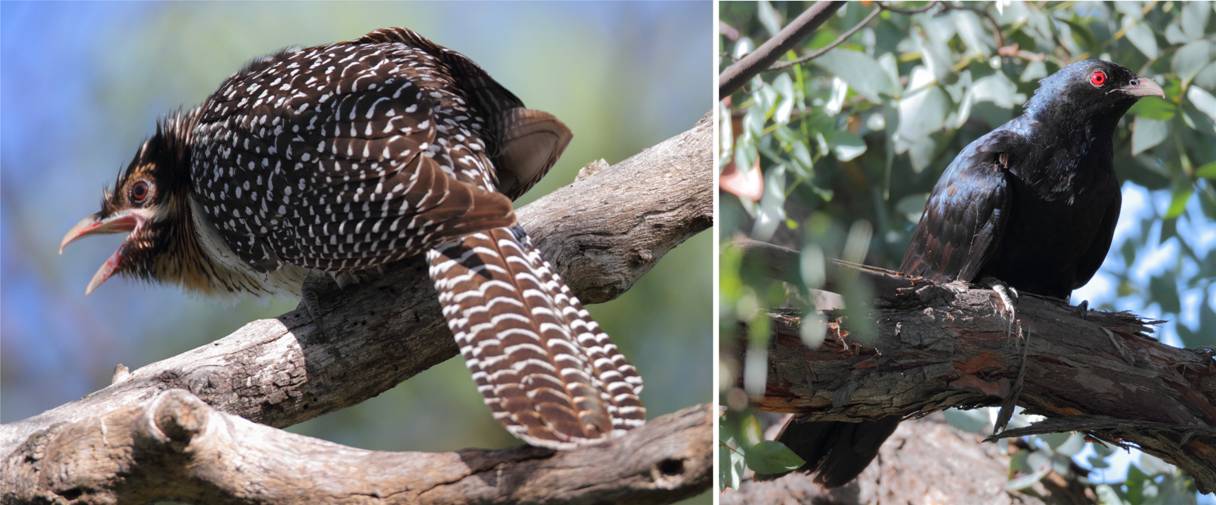In response to Michaels obs on the koels this year, around
here (Rocky Knob) there is more activity than in previous years. I think
I mentioned that in previous years a single male would sit in a tree-top
koeling for hours on end, rather unproductively. The male here this year
is much more businesslike, koeling only briefly at one spot before changing
position, listening alertly, and giving plenty of wurras when excited.
A female is regularly about and at least one other male, probably two, is often
within earshot. Incidentally, Malcolm Fyfe tells me koels are being
reported in Cowra.
The unusual call I mentioned previously is heard perhaps
every second day. I think this must be what is referred to in HANZAB
under 'other calls': 'four loud harsh single calls given by displaying
male, with similar calls by female in reply'. This is a loud, sometimes
startling, 'wuh-huh-huh-huh'. It is rather like a loud version of the
morning call of the Hooded Robin - but only the first 4 notes of the 5.
Below are this morning's snaps. The female ducks
below a wattlebird attack while giving its 'buzz-alarm' call, and a male
approaches the female in a leafy tree. Both show signs of having been at
the prunus.

-----Original Message-----
From: Michael and Janette Lenz [
Sent: Friday, 10 December 2010 7:41 PM
To: David McDonald; chat line
Subject: Impacts of rain on breeding success?
David,
I have also been wondering why Koels have only given
brief, fleeting
appearances this year in some of the areas where they
have been breeding
successfully in the past (e.g. Ainslie, Lyneham). Is this
also weather
related? Perhaps a reflection of limited numbers of
suitable host nests at
the right stage/time for dropping eggs in? With the mild winter/spring
and
some early welcome rains, several species have started
nesting earlier than
usual, this would have been followed by difficult
conditions for follow-up
broods (e.g. Red Wattlebird, Magpie-lark, Noisy
Friarbird, potential hosts)?
We also have to keep in mind that rainfall in different
parts of Canberra
can vary greatly; hence conditions and circumstances are
not uniform across
town. What may apply to some parts of our area, may not
be relevant in
others.
Michael Lenz

